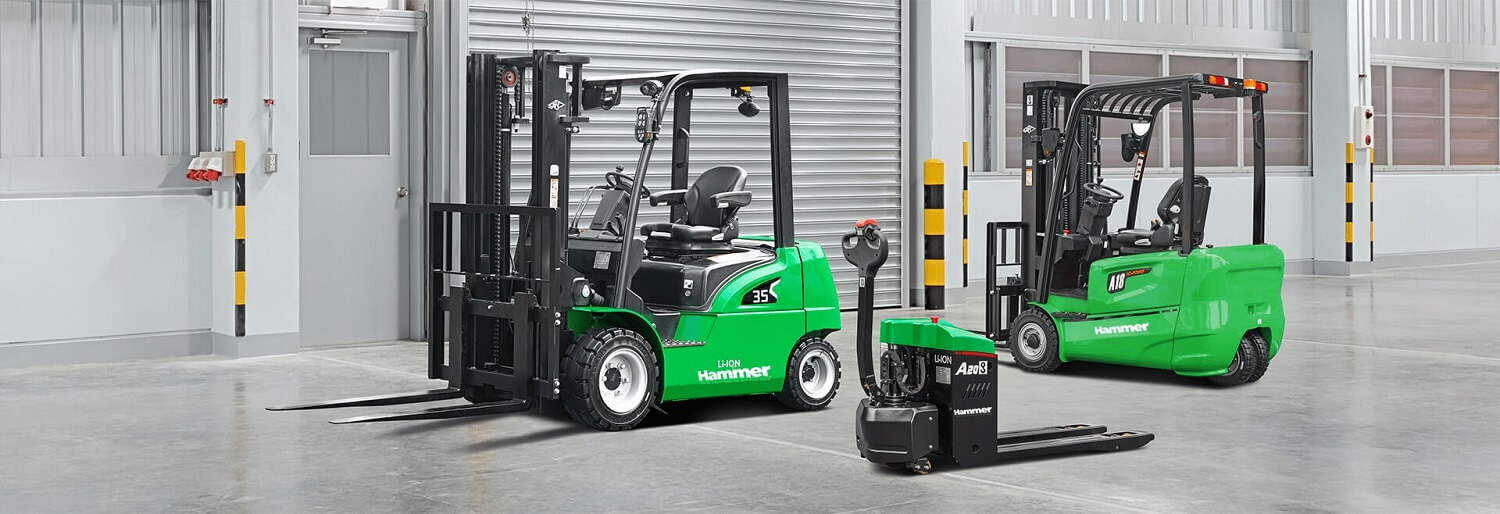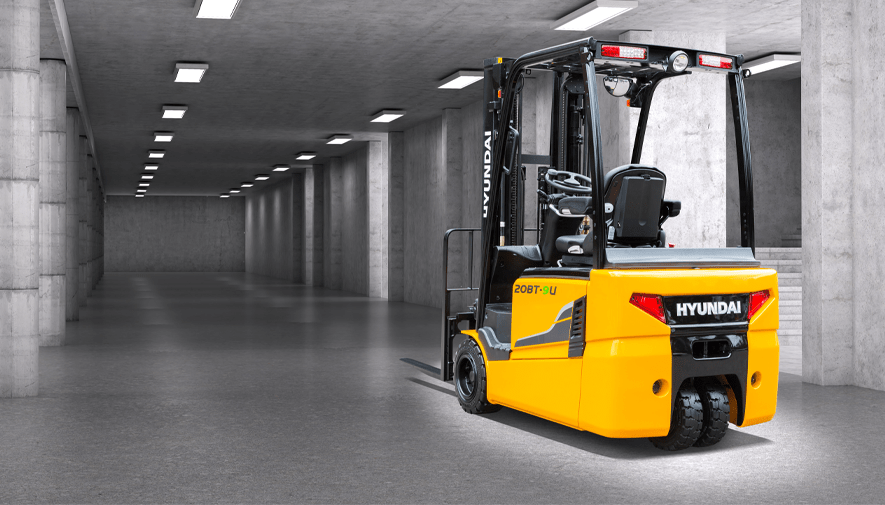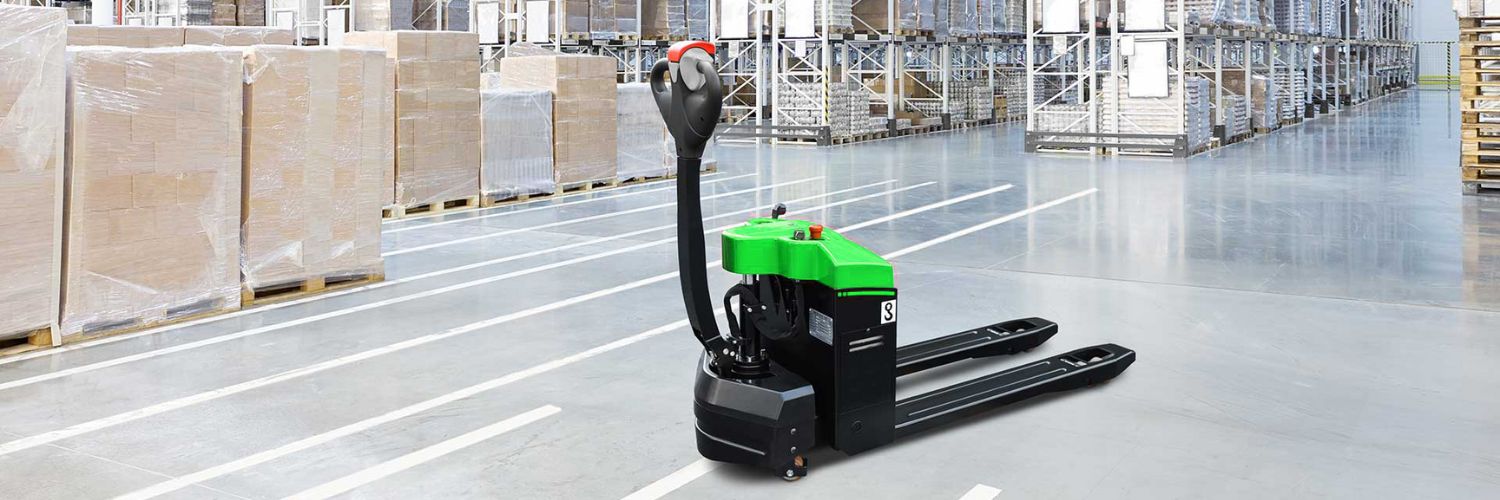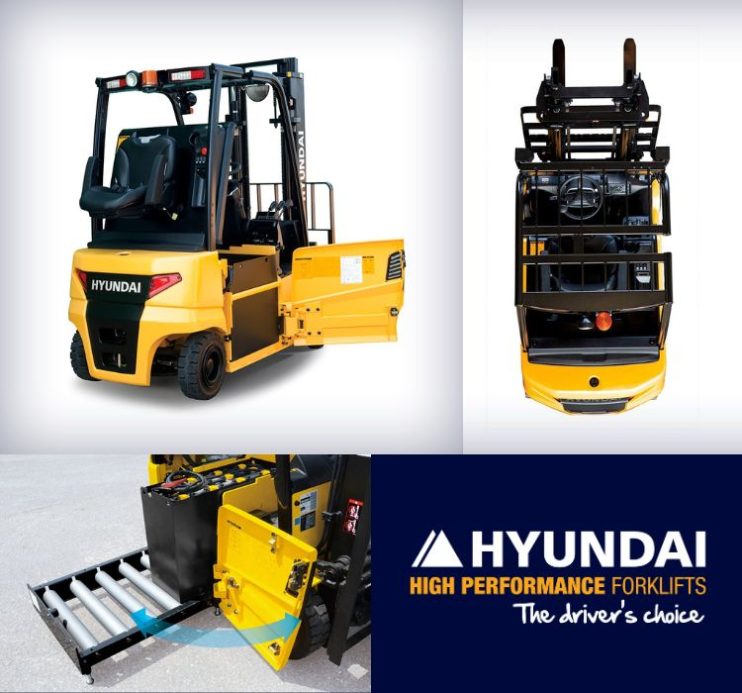
Electric Forklifts for a Sustainable Future
Introduction
In today's business landscape, companies are increasingly seeking sustainable solutions to reduce their environmental impact while optimising their operations. One area where businesses can make a significant positive change is in material handling operations. Traditional forklifts powered by internal combustion engines have long been the industry standard. However, the emergence of electric forklifts has revolutionised the way businesses handle materials, offering a multitude of benefits. In this article, we will explore the advantages of using an electric forklift and how it can help businesses achieve their sustainability goals while boosting efficiency and reducing costs.
Environmental Sustainability

Zero Emissions
Reduced Carbon Footprint

Commitment to Sustainability
Electric Forklifts Cost Savings

Lower Operating Costs
Electric forklifts are known for their cost-effectiveness in the long run. Compared to forklifts powered by fossil fuels, electric forklifts have lower operating costs. One of the main factors contributing to this cost advantage is the price of electricity compared to diesel or gasoline. Generally, electricity is cheaper, which results in reduced energy expenses for businesses operating electric forklifts.
Additionally, electric forklifts have fewer moving parts compared to their internal combustion engine counterparts. This means that they require less frequent maintenance, leading to decreased maintenance costs. With fewer components prone to wear and tear, businesses can save on repair and replacement expenses, ultimately reducing their overall operating costs.
Reduced Energy Expenses
Electric forklifts are powered by electricity, which is more cost-effective compared to conventional fossil fuels. By using electric forklifts, businesses can take advantage of lower energy expenses. This cost-saving aspect is particularly beneficial for companies that rely heavily on material handling operations, as it contributes to improved profitability and resource allocation.
Furthermore, the availability of energy-saving features in electric forklifts, such as regenerative braking systems, allows businesses to optimise their energy usage. These systems help capture and reuse energy that would otherwise be wasted during braking, further reducing energy expenses and maximising operational efficiency.
Fewer Maintenance Requirements
Another cost-saving advantage of electric forklifts lies in their reduced maintenance requirements. As mentioned earlier, electric forklifts have fewer moving parts compared to internal combustion engine forklifts. This means fewer components can malfunction or require regular maintenance.
With fewer maintenance needs, businesses can save on both the cost of parts and the labour associated with frequent repairs. Additionally, the reduced downtime due to maintenance allows for increased productivity and uninterrupted operations, ultimately contributing to better overall efficiency.

Quiet Operation
Advantages in Noise-Sensitive Environments
Improved Workplace Safety
The reduced noise levels of electric forklifts contribute to enhanced workplace safety. With quieter operations, workers can better hear warning signals, alarms, and communication from colleagues. This improves situational awareness, reducing the risk of accidents and promoting a safer working environment for everyone involved.
Furthermore, the absence of loud engine noises can eliminate distractions for forklift operators, allowing them to focus more on their tasks and react promptly to any potential hazards. By prioritising safety through the use of electric forklifts, businesses can mitigate the risk of accidents and reduce related costs, such as insurance premiums and medical expenses. What is the cost of an electric forklift? Contact us for the latest updated pricing for Li-Ion starting at $28,880 for a 2 ton version.
Stay tuned for the continuation...

